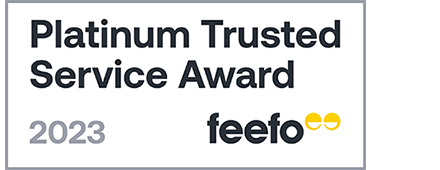service charge disputes
If there is one thing, above all others, that has the potential to seriously disrupt the smooth running of your apartment block, it’s a Service Charge dispute.
Service charges are the glue that holds the block together! They provide the injection of cash that is needed to keep the building (and other shared spaces) safe and in good working order. They provide the money in the bank to pay contractors, fix broken things and keep everything looking spick and span.
What happens when service charges don’t get paid?
Without the regular flow of service charge money, a flat that starts life as a safe, secure and desirable place to live, can soon turn into one that is tired, run down and losing value. And who would want to live there?
But for the leaseholder that has to find the cash, service charges might seem like an annoying expense, especially if the amount being charged seems to bear no resemblance to the actual costs being incurred, or the standard of service being provided as a result.
This scenario is a hot bed for potential dispute. A headache everyone could do without. Aside from the stress of drawn-out complaints and ongoing correspondence, a dispute over service charges also has the very real possibility of leading to non-payment or a management company or freeholder even being taken to a tribunal. None of which helps to maintain happy homes or cared for spaces.
Don’t let a battle over money bring your block to its knees!
Here are our 5 top tips to avoiding Service Charge disputes:
1. Ensure charges are fair and reasonable
The amount you charge will depend on what is written into the terms of your lease. But remember, Service Charges cannot be used as a source of profitable income. Monies collected must be held in Trust and used to cover the true cost of maintaining, insuring and managing your block. In turn, detailed accounts should be kept to demonstrate this.
Ensure charges are fair by creating a budget (see point 4) and sharing the expected cost equally between the number of flats in the block. The terms of your lease may also allow for the collection of a reserve fund (to pay for major works and cyclical maintenance in the future). If that’s the case, an amount can be included in the service charge for the reserve fund too.
Typically, service charges are variable, so they can (and should) be reviewed from year to year.
Our advice: Re-tender your supplier contracts regularly to make sure you continue to get the best value for all of your day-to-day maintenance work.
2. Collect the cash promptly
Service Charge collections can be done in advance, based on an estimate of the likely costs for the coming year, or in arrears at the end of your financial year (once you have a complete record of actual expenses).
How often and when you collect will be determined by what’s in your lease, and this can vary from block to block.
Commonly, service charges are collected once or twice a year in advance, because the benefit of doing this is that the cash is in the bank before expenses are incurred.
Our advice: Get ahead of the game and issue Service Charge demands promptly, along with a summary of the leaseholders rights and obligations. Make it as easy as possible for people to pay and have a clear step-by-step process for chasing late-payers. If one of your leaseholders has a grumble, find out and fix it BEFORE they even consider withholding money.
3. Be open and upfront with your financial info
Legally leaseholders should be provided with a Statement of Account every year, showing the actual expenses incurred in the maintenance of the building. This needs to be signed off and certified by a qualified and independent ICAEW accountant.
If you spent less that you estimated, you can transfer the remaining cash into a reserve (or ‘sinking’) fund that goes towards the cost of future major works. Or you can credit the difference back to leaseholders on their next annual Service Charge. If you spent more, you are entitled to recover the shortfall from leaseholders through a ‘balancing charge’.
The key here is to be upfront with your information and keep leaseholders in the loop. The more detailed and clear you can be with any correspondence relating to money, the better!
Our advice: Don’t wait for leaseholders to contact you for info. Issue your Service Charge Accounts as soon as possible after year-end and provide useful breakdowns and commentary on what it all means. If someone has a query, respond quickly to avoid payment being withheld whilst they wait for an answer.
4. Plan ahead
Every block should have a service charge budget for the year – that’s just good financial sense. You need to have an idea of what your likely expenses will be, in order to collect the right service charge money to cover them!
From time to time your block will also need larger scale works – like repainting the exterior, replacing window frames or upgrading the security system. If your lease allows for the collection of a reserve fund, get help from a professional Chartered Buildings Surveyor to prepare a capital expenditure plan and cost-up those major works. You can then factor these likely costs into your annual service charges and avoid the need to hit leaseholders with a hefty one-off bill at any point.
Our advice: Prevention is better than cure. Be realistic about when it’s likely to become more cost effective to replace something (e.g roof, windows, lifts, carpet, doors, gates), than to keep fixing it when it breaks. Planning ahead in this way helps to keep service charges fair and leaseholders happy.
5. Keep in touch
Usually, a leaseholder will only dispute a Service Charge if they’re unhappy with some area of the block maintenance, or they simply don’t have enough information to reassure themselves that the Service Charge is fair.
It is a situation that can so easily be avoided if you communicate with leaseholders regularly, give them the info they need and respond quickly. If that means inviting them to view the accounts or arranging a meeting to talk through a query or concern, then do it!
Our advice: Make it easy for leaseholders to get in touch with you. There is nothing more frustrating for a leaseholder than to feel their concerns are going unanswered, so if you can develop a good relationship with the flat owners in your block, that will go a long way towards avoiding disputes. Happy homes = happy days!
Following these bits of advice is the easiest way to prevent your block from going into financial freefall or your time from being wasted at a tribunal.
For a definitive guide on service charge best practice check out the RICS Service Charge Residential Management Code.
For friendly advice about all things Block Management – give us a call!






